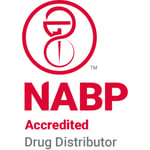Shortage of pharmacy technicians persists in 2023 — here’s how to streamline and adapt your operations
The shortage of pharmacy technicians is straining pharmacies across the nation, with seemingly no end in sight to the dearth of qualified workers. In fact, vacancy rates have climbed to over 20% from 6% on average, with 10% of hospital pharmacies reporting they’ve lost up to 40% of their techs.
We’ve previously covered how the pharmacy technician shortage leaves crucial tasks without a clear owner, straining existing staff and resources. Unfortunately, the void of workers continues, exacerbating the pains felt by pharmacies and their teams. Pharmacy leaders worry not just about filling open roles, but about burnout of current employees increasing the risk of errors.
This shortage is especially straining on hospital-based teams, which tend to take on more responsibilities and patient interaction than retail pharmacies.
Why are pharmacy techs in short supply?
 You likely already know why it’s hard to find and keep hospital-based pharmacy technicians. The job can be chaotic and unforgiving, with long hours and massive accountability to patient health. But the COVID-19 pandemic incited fear of exposure and infection by working in a pharmacy setting, which didn’t do the workforce any favors, either.
You likely already know why it’s hard to find and keep hospital-based pharmacy technicians. The job can be chaotic and unforgiving, with long hours and massive accountability to patient health. But the COVID-19 pandemic incited fear of exposure and infection by working in a pharmacy setting, which didn’t do the workforce any favors, either.
Overall interest in the career of pharmacy technician is evident in decreasing enrollment rates at training programs. And as those programs lose money, the quality of education decreases. Then it’s a compounding effect of fewer techs with less impressive skill sets.
What else makes the job tough and contributes to turnover rates as high as 41%?
- Inadequate compensation — ¾ of techs say they want higher pay if they’re expected to stick around
- Career dead-ends — pharmacy techs often lack a clear career growth path, leading to disinterest and disillusionment
- Overworked and under pressure — even though the pandemic has passed, the lingering effects have made the job harder
- Unmanageable schedules — working overtime, covering vacant shifts, and doing their best to care for their customers while keeping a modicum of work-life balance
The same research shows that not only are techs overworked and understaffed, but that much of this extra workload ends up on the pharmacists themselves. That means the highest-paid employees with the most important responsibilities in the pharmacy are being saddled with work that detracts from their core duties.
Pharmacists having to step into tech duties has resulted in 53% reducing services and 48% delaying new services.
Here’s how you can flip the script on the pharmacy technician shortage and take your hospital operations from surviving to thriving.
Expand pharmacy tech training and duties
While fewer and less educated techs might be coming through the door, the opportunity for on-the-job training remains — and can take mediocre talent to invaluable operational assets. Upskilled pharmacy techs can take on compounding and specialize in certain fields of drugs to expand the pharmacy’s overall capabilities. They can grow into hazardous material handlers, medication therapy managers, pharmacy buyers, insurance specialists, and more.
They might even be eager to become a pharmacist themself, one day. Nearly ¾ of technicians contribute their job longevity to the leadership and mentorship of their supervising pharmacist.
Empower career progression to encourage longevity
Many techs report unclear paths to promotions and higher wages as their reason for leaving their jobs. From the time they’re hired, these employees should have a firm grasp on what, when, and how they can progress within the pharmacy or hospital to encourage dedication to their duties. The hospital or pharmacy can also sponsor conferences, training, certifications, and other opportunities for techs to grow their skills.
This opportunity can increase motivation and accuracy while improving overall job satisfaction. Happier techs stick around longer, refer their friends, and become the best future managers and pharmacists.
Increase pay
Of course, the simplest answer in this case also tends to be the most difficult. More money seems to be the consensus solution for bringing in more techs and keeping them longer. Whether that’s wage increases, sign-on bonuses, retention pay, or other financial rewards, the message is clear.
But the challenge is finding that budget. Some pharmacies choose to reduce services or business hours and use those savings to increase compensation. Admittedly, taking such measures merely changes the balance of the staffing shortage, and in the end, patients end up with a lower-quality experience either way.
Solutions to the pharmacy technician shortage need to free up more of the budget while also reducing the workload, so services need not be reduced.
Embrace unit-dose drug repackaging to save time and money
Another surefire way to optimize the workload of pharmacy technicians and make the job more appealing is to take the tedious — yet critical — duty of repackaging off their plates. With a responsibility like this handled by a partner like Safecor Health, pharmacy techs can trust medications are properly dosed and devote their time instead to caring for their patients.
Unit-dose repackaging services save time for techs and pharmacists. It also reduces the labor costs associated with repackaging, and reduces the need for on-site repackaging equipment, saving more money. These medications are accurately packaged in whatever format is needed (solid, liquid, syringes, etc.) and RFID/barcode tracked for inventory streamlining.
Hospital pharmacies utilizing unit-dose repackaging through Safecor Health save $400-700 per patient bed annually, thanks to the increased efficiencies, reduced waste, and freed-up resources. They’re also ensuring patient safety by complying with the latest FDA requirements — which can also put a strain on hospital pharmacies’ operations and people.
Hospital pharmacies can sign up individually or health systems — with multiple hospitals and pharmacies — can sign up with SafecorLogics. They can also look to prepackaged medications from Safecor that can be purchased through their pharmacy wholesaler with next-business-day delivery.
Whether you reduce costs and improve efficiencies at a single hospital’s pharmacy or at locations across the network, medication repackaging can ease the challenges caused by the pharmacy technician shortage.


